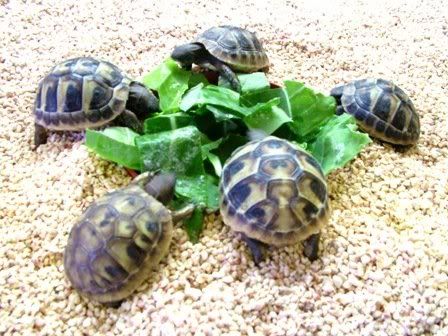GeoTerraTestudo said:HtVic said:do greek and hermann hibernate?
Ibera Greeks, Hermanns, and Russians can all brumate for several months during wintertime. Marginateds, Egyptians, and southern Greeks (including Golden Greeks) come from hotter climates, so although they can go through short dormant periods, they do not brumate through cold winters the way their northern cousins do. All Testudo species, however, can aestivate in the summer when the weather gets too hot.
I live in Canada, right now is winter time until March before spring, if I get a Hermann hatchling now, should I let it brumate, or I have to wait until next winter?
cherylim said:HtVic said:she is so gorgeous, that's the shell i like, but i thought eastern Hermann their shell suppose to be darker.
I think Emrys is one outstanding tort
Thank you.

As I said, typically the Hermann's here are quite a bit darker than Emrys - these were Emrys' siblings and tank-mates.

But obviously tortoises with his colouring will be out there. I specifically think they're more common with a few generations at least of captive breeding. Emrys has an abnormality in the number of vertebral scutes, too, which is a signifier that there may have been some inbreeding going on that caused my little oddball.
And in contrast, Western Hermann's which I'm personally not as keen on:

yea it could be, I think I will go for hermann

